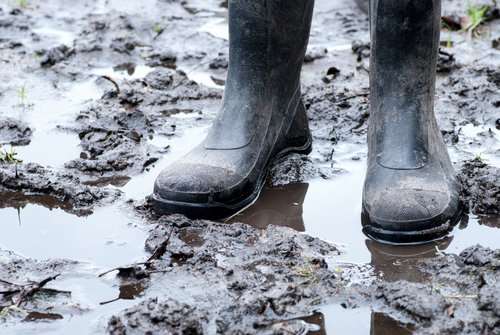Whether Ontario experiences drought or flooding, producers should prepare themselves
By Jennifer Jackson
The key to managing unpredictable water levels is planning for the extremes, according to representatives from the Ontario Ministry of Agriculture, Food and Rural Affairs (OMAFRA).
From the 2016 drought that plagued many fields to the excess moisture in parts of the province so far in 2017, Ontario producers are no stranger to extreme moisture levels.
These weather patterns can be devastating for producers but also provide an opportunity to learn the needs of your farm.
“Dry conditions last year (emphasized) some of the messages about planning that we like to talk to growers about. This year, (OMAFRA) had campaigns ready to talk to growers about low water … (however) now we are experiencing high water levels,” says Rebecca Shortt, water quality engineer for OMAFRA.
“We saw that (despite the opposite weather conditions) the main message to producers is still the same.
“In general, we would like to encourage growers to be prepared – for livestock producers, water (supply) is critical.”
Excess water can be detrimental to livestock producers’ operations, says Tim Brook, water management engineering specialist for OMAFRA.
Manure management, for example, can be negatively affected by excess moisture.
“There can be some concern with excessive water impacting manure storage such as liquid manure storage,” he says. “The (units) have to have the capacity to handle the excessive water.”
Wetter than usual conditions can also affect producers’ ability to grow enough feed or spread manure, as they can’t work in wet fields.
In contrast, dryer than normal conditions brings its own issues, says Shortt.
“Obviously for livestock, water is critical,” she says. “It’s important in years like 2016 that the water supply is adequate to go through a dry period … and the water supply can meet the demands of the livestock.”
Producers should have plans in place for either weather extreme. For example, determine access points for extra water needed in case of a drought, or ask to use a neighbour’s old manure storage unit when yours reaches capacity in wet conditions.

rbirch1/iStock/GettyImagesPlus
Farmers should also use this excessive moisture to inspect their water management methods, Brook says.
“If you have a drainage system on your property, it is important to inspect the (whole) system,” he says. “If you have surface level inlets, (for example), it’s important to inspect them and take (care of any) debris so water can move through them as designed.”
Also, review the drainage system for any needed repairs or erosion that could inhibit the system’s ability to manage future rainfalls.
Planning also involves “taking a step back in the moment and asking yourself, what are the things (my farm) is struggling with (that I can address) three weeks from now? And, what can I work on six months from now?,” says Shortt. “When high or low water occurs, what are the short- and long-term (issues) we need to address.
“Maybe there are multiple (issues) – right now, it’s a low cost activity such as repairing an inlet and, in the future, it’s looking at higher cost investments (such as restructuring the tile drainage).”
OMAFRA has a wide variety of resources online to help producers create water contingency plans to suit their unique operations. Some of these tools include business risk management programs accessible through Agricorp and a database of Ontario tile drainage contractors.
Shortt and Brook encourage producers with more questions to contact OMAFRA’s Agricultural Information Contact Centre.